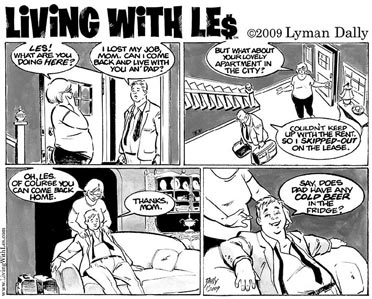“Who the hell is John-Boy?”
March 15, 2010Jon Brooks 5 Comments »On Grant McCracken’s blog, which “sits at the intersection of anthropology and economics,” this post argues that the American corporation is out of touch with much of the country’s population.
The John-Boy Problem (Boomer managers out of touch)
Let’s say we are a luxury car company. We’re doing a year-end review of marketing. We’re looking at everything, including person who supplies the “voice over” for our ads.
The room is filled with around 25 people. This room is mostly Boomers with 8 Gen Xers and 4 Gen Yers (aka Millennials).
“I say we stay with John-Boy,” says the most powerful person in the room. There is a pause as other Boomers nod their heads sagely. Richard Thomas has been the voice of the brand for many years.
But Generations X and Y are thinking, “Who the hell is John-Boy?” They don’t say anything. Then the penny drops. “Oh, they must mean that guy Richard Thomas.”
Their confusion is forgivable. Richard Thomas starred in a TV series called The Waltons, a show that ended in 1981. That’s almost thirty years ago. The oldest Generation Xer was 20 in 1981, the youngest was born that year. No member of Generation Y was watching TV in 1981. For Generation Z, Richard Thomas might as well be a Martian.
For half the room, Richard Thomas is just “some guy.” Actually, he’s just “some guy” for half the country. Certainly, it’s true that Boomers buy most of the luxury cars in this country, but this will not last. And in the meantime, we have 3 generations listening to a voice that means nothing to them.
And this is just odd. As these markets mature towards the age and income, the corporation insists in addressing them in a voice they do not recognize.
I believe this problem plays out in the corporate world several times a day. Boomers make choice that work for their culture, for the world they know. And the other half of the room (and the market) is left to wonder, “Who is the hell is John-Boy?”
The John-Boy problem is bigger than it seems. The American corporation is not just bad at youth culture, it’s out of touch with a good deal of the American world. It doesn’t have any real feeling for the ethnic variety of America, the alternative and indie movements, the constant ebb and flow of lifestyle, the churn in the sports world. What is happening in the world of music, film, sports (post arena), art, and social media? For that matter, what is happening in the kitchens of the American heartland? Even this is changing. Even this is mysterious.
The corporation needs to know. It’s not enough to bring in the cool hunters and trend consultants. These people have no vested interests. Frankly, they disdain the corporation for being clueless. No, the corporation need its own internal brain trust, stock of knowledge, and enduring mastery of American culture. Anything else is just guessing. And guessing is something the corporation is not allowed to do.
The inverse of this is that it took me months to figure out that Lady Gaga wasn’t some aristocratic infant with a great press agent…














